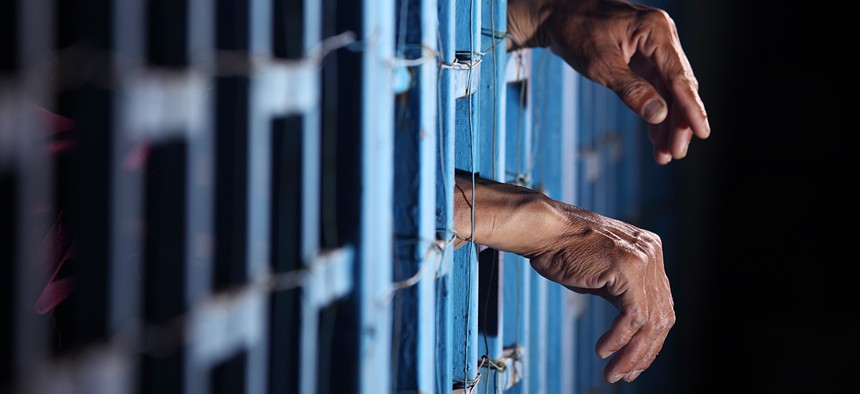White House Thinks Data Could Keep Many With Mental Illness Out of Jail

sakhorn/Shutterstock.com
Amazon, Esri and other tech companies are also on board.
A White House program aims to reduce the number of low-level offenders in the criminal justice system, and tech companies including Amazon have signed up to help.
On Thursday, the White House unveiled a new data program that focuses on keeping low-level offenders with mental illnesses out of jail -- potentially by identifying people with the highest number of contacts with police, emergency rooms and ambulances and connecting them with mental health services.
The White House-led Data-Driven Justice Initiative involves 67 city, county and state governments who have agreed to use similar strategies to reduce the incarceration of people who pose little risk to a community.
This approach could reduce stress not only on the criminal justice system, but also on emergency health services, according to the White House.
The program is part of a larger set of White House programs aimed at using technology, including artificial intelligence, to make the criminal justice system more efficient. Last month, a senior adviser argued that machine learning could help decide which officers to deploy, based on their current levels of psychological stress, to minimize a potential misuse of force.
» Get the best federal technology news and ideas delivered right to your inbox. Sign up here.
Several tech companies, including Amazon, Motorola and Socrata, have agreed to contribute technology, as well as data scientists and researchers, who can help governments analyze data while protecting the privacy of individuals. Software mapping company Esri, for instance, plans to donate licenses to the first 100 communities who sign up to create a pilot using spatial technology.
The program also aims to use "pre-trial risk assessment tools" that would help identify defendants who are low-risk but still being held in jail. Law enforcement and first responders would also be instructed in de-escalating crisis situations, and, where appropriate, diverting people to mental health service providers instead of arresting them, according to the White House.
NEXT STORY: As Term Winds Down, Obama Signs FOIA Reform Bill





